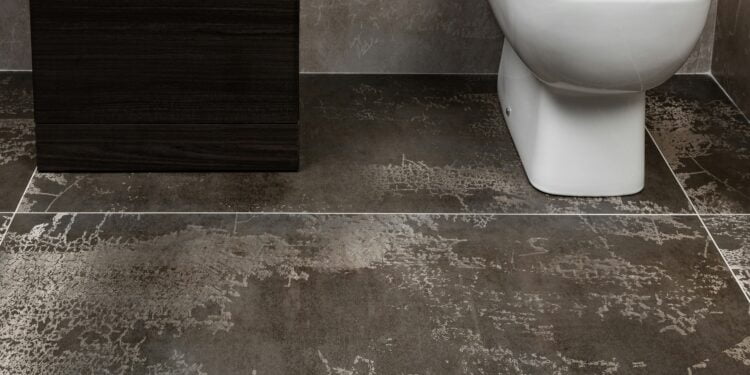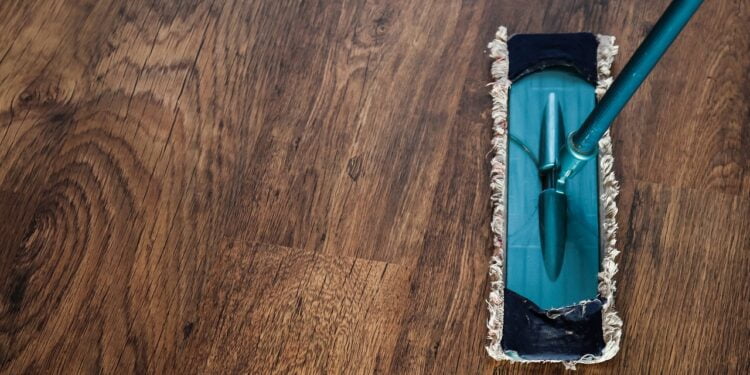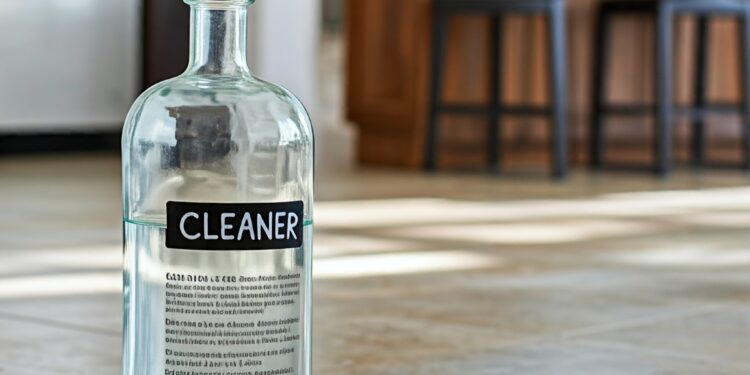Keeping your home clean shouldn’t come at the cost of your health or the environment. Conventional floor cleaners are often packed with harsh chemicals, leaving behind residues that can affect indoor air quality and even irritate the skin. But what if you could make your own homemade floor cleaner that is safe, effective, and eco-friendly? In this guide, we’ll walk you through several DIY solutions for spotless, chemical-free floors.
Why Choose a Homemade Floor Cleaner?
Before diving into recipes, it’s important to understand why homemade floor cleaners are a better option than their store-bought counterparts.
Firstly, they are environmentally friendly. Most commercial cleaners contain harmful chemicals that, when washed away, enter our waterways and negatively impact marine life. Opting for homemade solutions reduces this impact.
Secondly, homemade cleaners are cost-effective. The basic ingredients used—like vinegar, baking soda, and essential oils—are affordable and often already in your pantry.
Finally, these cleaners are non-toxic, making them safe for homes with children, pets, or anyone with allergies or sensitivities to strong chemicals.
Ingredients to Use in a Homemade Floor Cleaner
Creating an effective homemade floor cleaner doesn’t require anything fancy. You can use simple, natural ingredients that you probably already have at home. Here are some common ones:
- Vinegar: Its acidity cuts through grease, dirt, and grime, leaving floors shiny.
- Baking Soda: Works as a natural deodorizer and helps lift stubborn stains.
- Lemon Juice: Provides a fresh scent and antibacterial properties.
- Essential Oils: Adds fragrance and antibacterial benefits; tea tree, lavender, and eucalyptus oils are popular.
- Castile Soap: A gentle, biodegradable soap that cleans without leaving harmful residues.
Homemade Floor Cleaner Recipes for Different Surfaces
Different floors require different cleaning methods. Let’s look at specific homemade floor cleaner recipes for a variety of floor types.
1. All-Purpose Homemade Floor Cleaner for Tile and Laminate Floors

This basic recipe works wonders on tile and laminate floors. It leaves them streak-free and shining.
Ingredients:
- 1/2 cup white vinegar
- 1 tablespoon baking soda
- 1 gallon warm water
- 10 drops of essential oil (optional for fragrance)
Instructions:
- Mix the vinegar and baking soda in warm water until dissolved.
- Add essential oil if desired.
- Mop the floor with the solution and let it air dry.
2. Wood Floor Cleaner

For wood floors, you’ll want a solution that’s gentle enough to avoid damaging the finish but strong enough to clean effectively.
Ingredients:
- 1/4 cup Castile soap
- 1/4 cup white vinegar
- 2 gallons warm water
- 5 drops of essential oil (lemon works well)
Instructions:
- Mix all ingredients in a bucket.
- Use a damp (not soaking wet) mop to clean your wood floors.
- Dry the floor afterward with a microfiber cloth to avoid water damage.
3. DIY Cleaner for Stone Floors

Natural stone like marble or granite requires special care, as vinegar and other acidic ingredients can cause damage. This solution is perfect for preserving the beauty of your stone floors.
Ingredients:
- 1/4 cup Castile soap
- 2 gallons of warm water
- 10 drops of essential oil
Instructions:
- Mix the Castile soap and warm water.
- Mop the floors with the solution, and be sure to dry thoroughly with a soft towel.
The Benefits of Essential Oils in Your Homemade Floor Cleaner
While essential oils are optional, they offer great benefits when added to your homemade floor cleaner. Here’s a look at some popular options:
- Tea Tree Oil: Known for its antibacterial and antiviral properties, tea tree oil can help disinfect surfaces and keep your home germ-free.
- Lavender Oil: Adds a calming, pleasant scent while also boasting antibacterial qualities.
- Lemon Oil: A great degreaser that leaves behind a fresh, clean scent.
For those interested in learning more about essential oils, you can check out this detailed guide on essential oils for home cleaning.
How Often Should You Use a Homemade Floor Cleaner?
How often you should clean your floors depends on factors like foot traffic, pets, and overall dust levels. In general:
- For high-traffic areas: Clean once or twice a week.
- For low-traffic areas: Clean once every two weeks.
If you have pets or small children, you may want to clean more frequently, as floors can easily pick up germs and dirt. The good news is, homemade floor cleaners are gentle enough for frequent use without damaging the surface.
Avoid These Mistakes When Using a Homemade Floor Cleaner
While homemade floor cleaners are easy to make, there are a few common mistakes to avoid:
- Using too much vinegar on wood floors: Though great for cutting grime, vinegar can damage the finish on hardwood floors.
- Oversaturating the floor: Always use a damp mop rather than a soaking wet one, especially on wood or laminate floors, to prevent water damage.
- Not testing first: Always test your homemade cleaner on a small, inconspicuous area before applying it all over. Some surfaces might react differently to certain ingredients.
Are Homemade Floor Cleaners Safe for Pets?
Yes, homemade floor cleaners are much safer for pets than chemical-based products. However, be cautious when using essential oils, as some oils, such as tea tree and peppermint, can be harmful to pets if ingested. It’s best to avoid these in areas where your pets spend a lot of time.
For further reading on pet-safe cleaning practices, visit ASPCA’s guide to pet-safe cleaning products.
How to Store Your Homemade Floor Cleaner
Unlike store-bought cleaners, homemade solutions don’t contain preservatives. While they’re best used fresh, you can store extra in a sealed container for up to two weeks. Keep it in a cool, dark place, away from direct sunlight.
Make sure to label your container with the contents and the date it was made. Shake well before each use, as some ingredients may settle.
FAQs
What’s the best homemade floor cleaner for tile floors?
A mix of vinegar, baking soda, and warm water is great for tile floors. Adding essential oils for fragrance can enhance your cleaning experience.
Can I use vinegar on all types of floors?
No, vinegar is too acidic for natural stone and some types of hardwood flooring. Use a specific cleaner for those surfaces to avoid damage.
How often should I mop my floors?
In high-traffic areas, mopping once a week is recommended. For lower-traffic zones, every two weeks should suffice.
Can I store my homemade floor cleaner?
Yes, you can store it for up to two weeks in a sealed container, but fresh batches are always best.
Are homemade floor cleaners safe for pets?
Generally, yes, but avoid using essential oils that may be toxic to pets, such as tea tree or peppermint oils.
Will these cleaners work on tough stains?
Yes, many natural ingredients like vinegar and baking soda have excellent stain-lifting properties. For tough stains, a paste of baking soda and water can be applied directly to the spot before mopping.
Homemade floor cleaners are an excellent choice for anyone looking to reduce their environmental impact, save money, and keep their home free from harsh chemicals. With just a few basic ingredients, you can create effective cleaning solutions that work for all floor types. Plus, knowing exactly what goes into your cleaner means more control over the health of your home.
For more information on non-toxic cleaning, visit The Environmental Working Group.
Suggestions for Inbound and Outbound Links
- External: Link to trusted sources like ASPCA or EWG for information on pet-safe cleaners or non-toxic ingredients.














